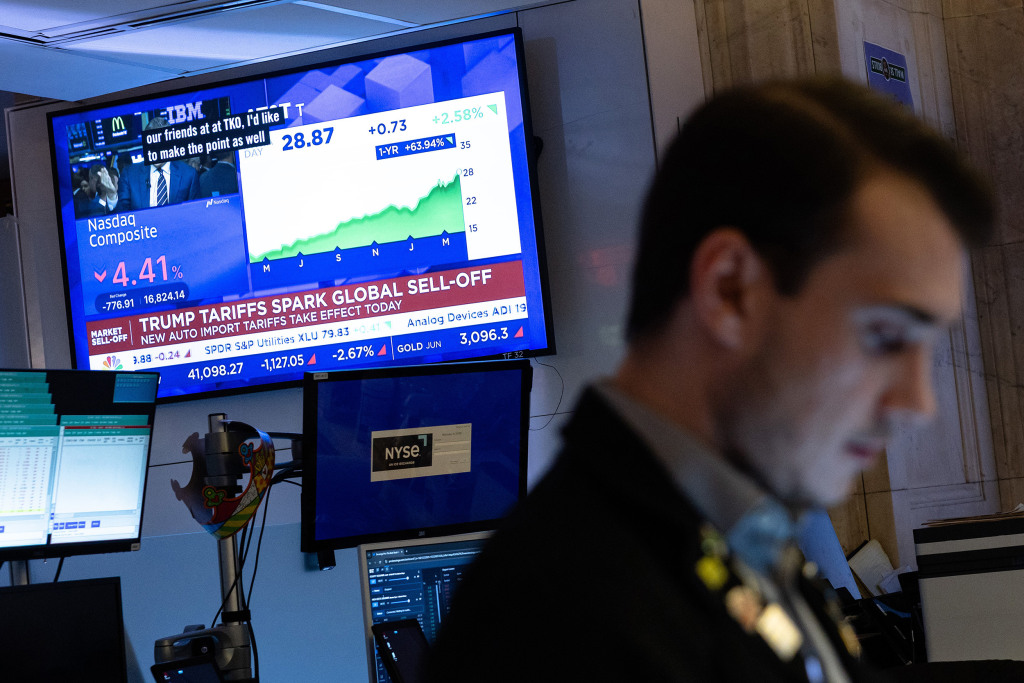
Dow Jones Plummets as China Fires Back in Escalating Trade War
The global markets are in turmoil as China retaliates against Donald Trump's aggressive tariff policies, sending shockwaves across the financial world. On Friday, China announced a hefty 34% tariff on all US imports, a direct counterstrike to Trump’s earlier tariff hikes. This move has intensified fears of an impending global recession, with stock markets worldwide reacting negatively.
The Dow Jones Industrial Average took a brutal hit, dropping over 1,200 points—roughly 3.1%—early Friday morning. The S&P 500 and Nasdaq also suffered steep declines, with investors scrambling to make sense of the rapidly escalating trade war. The market reaction was immediate and severe, mirroring concerns that economic stability is now at serious risk. European and Asian markets also followed suit, with indices tumbling across the board.
Beijing’s finance ministry made its stance clear: any goods originating from the United States will face an additional 34% tariff, intensifying trade tensions between the world's two largest economies. Furthermore, China has tightened its grip on rare earth exports—critical materials used in high-tech industries like electric vehicle manufacturing—while adding 16 more US companies to its export control list, restricting their access to the Chinese market.
Also Read:- John Oliver Faces Defamation Lawsuit Over Medicaid Episode
- Katy Perry Joins Historic All-Female Blue Origin Space Flight
Trump, known for his defiant rhetoric, took to social media to respond. His message? "CHINA PLAYED IT WRONG, THEY PANICKED – THE ONE THING THEY CANNOT AFFORD TO DO!" Despite the financial turmoil, he remains steadfast in his approach, believing that his tariff policies will force companies to shift production back to the US. However, major financial institutions, including JP Morgan, have sharply increased their recession forecasts, now estimating a 60% chance of a global downturn by the end of the year.
The fallout is massive. The FTSE 100 in London plunged by more than 300 points—the worst single-day drop since early 2023. European stocks collectively slumped by 4.4%, and the price of Brent crude oil nosedived by 6.6% to $65.50, its lowest level in nearly four years.
Analysts are split on the long-term implications. While some believe China’s response has been relatively measured and strategic, others argue that this aggressive retaliation signals a prolonged and bitter trade conflict. Wang Wen, a leading Chinese economist, stated that China "will never give in to Trump’s tactics" but remains open to negotiations based on mutual respect.
Major US corporations that rely on Chinese manufacturing, including tech giants and retail behemoths, are now bracing for impact. Fast fashion companies like Shein and Temu, which have benefited from loopholes in US import rules, will soon face higher costs as Trump’s policies take full effect in May. These companies will now be subject to new fees that could significantly alter their business models.
Meanwhile, China has officially filed a lawsuit against the United States with the World Trade Organization, further escalating the situation on the global diplomatic stage. Investors and business leaders are left wondering—will this trade war eventually lead to a deal, or are we on the brink of a full-blown economic crisis?
For now, all eyes are on the markets, as uncertainty continues to dictate investor sentiment. One thing is clear: the trade war between the US and China has entered a new, more dangerous phase, and the financial world is holding its breath for what comes next.
Read More:


0 Comments